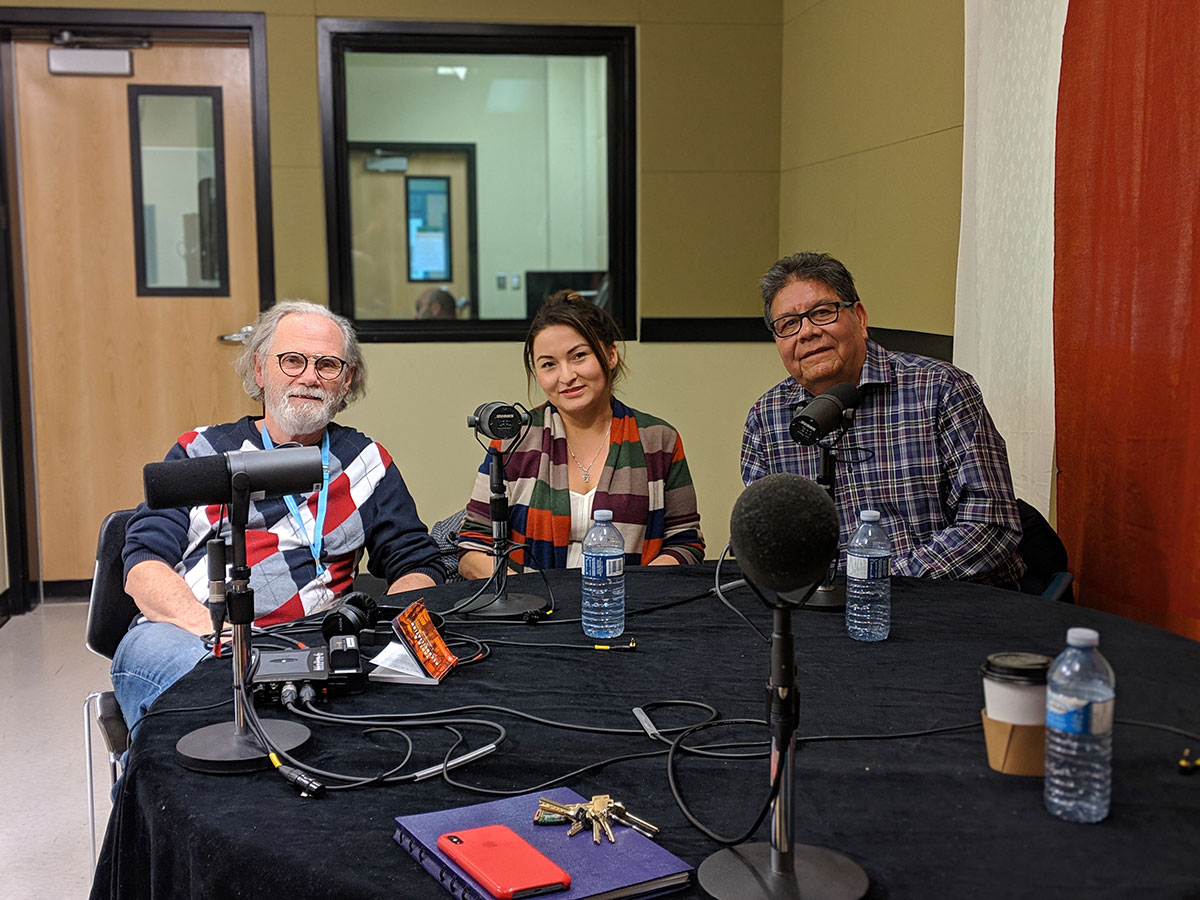
Whenever one culture imposes its definition of family on another, nothing good follows, says Peter Choate, a social work professor at Mount Royal University.
“I don’t think we have a single example anywhere in the world where one culture-defining family for another culture has worked,” says Choate.
Take the Blackfoot language, for example, where there is no literal translation for certain family members that exist in western cultures.
“In Siksika, we don’t have a word for auntie or uncle,” says Roy Bear Chief, an elder from Siksika Nation, located southeast of Calgary.
“My late mother’s siblings would be my parents, too. My grandparents and their siblings are my grandparents,” says Bear Chief who is part of a dwindling population still able to speak the Blackfoot language.
“That’s the beauty of still retaining the language, to be able to understand. Because language and culture are tied together,” adds Bear Chief.
Language matters
“There are words and concepts in Blackfoot that in English we can do nothing with,” says Choate, an expert on child intervention issues in Alberta.
Choate adds that without direct English translations for Indigenous languages such as the Blackfoot language, public institutions resort to using English terms, which impose concepts on Indigenous people that do not exist.

Bear Chief agrees, “I don’t look at it as [if] my mother’s brother is my uncle, my mother’s sister is my auntie. There’s no such thing.”
Bear Chief also adds that using a western model to determine kinship doesn’t work.
The issue is exacerbated when children are taken from their families and from their communities, it removes them from their language and culture.
“Start injecting the language and the culture back into the young people. Because once you have that, then you have the identity.”
Bear Chief says his culture was lost when he was separated from his family to attend residential school at age seven.
“Little did I know that we were not supposed to speak our language or we’d get punished for it,” says Bear Chief.
Bear Chief sees language as a vital link to maintaining his culture and feels it’s his duty to pass down the language to the next generations.
Even so, Bear Chief says subconsciously, he still feels shame when speaking Blackfoot.
Bear Chief believes that if the government provides Indigenous communities with the resources to run their own ‘child welfare’ it would be the best thing for Indigenous communities.
“All I’m saying is, give it back to us.”
 Social work expert, Peter Choate says that whenever one culture imposes their idea of family on another culture, it never works out for the best. Photo by Ricardo-Andres Garcia
Social work expert, Peter Choate says that whenever one culture imposes their idea of family on another culture, it never works out for the best. Photo by Ricardo-Andres Garcia
A system that needs a major overhaul
There is a long history of systems in Canada, privileging western family structures over Indigenous ones, says Choate.
He cites the 1983 Supreme Court decision, which Racine V. Wood ruled that the bond between a child and single caregiver was more important than keeping the child connected to his or her culture.
The decision reads: “The significance of cultural background and heritage, as opposed to bonding, abates over time: the closer the bond that develops with the prospective adoptive parents the less important the racial element becomes.”
The ruling is among many factors that see many Indigenous children placed in non-Indigenous foster care.
The most recent Statistics Canada data from 2011, shows that Indigenous children make up 52.2 per cent of all foster children zero to 14, despite accounting for just 7.7 per cent of Canadian children in that age range.
Indigenous children are in an impossible situation says Choate.
“You take the identity, and the child welfare system begins to hold the identity and holds the identity away from the child who then is somehow supposed to be creating an identity in a system, which is foreign to the child,” says Choate.
Editor: Tawnya Plain Eagle | tplaineagle@cjournal.ca

